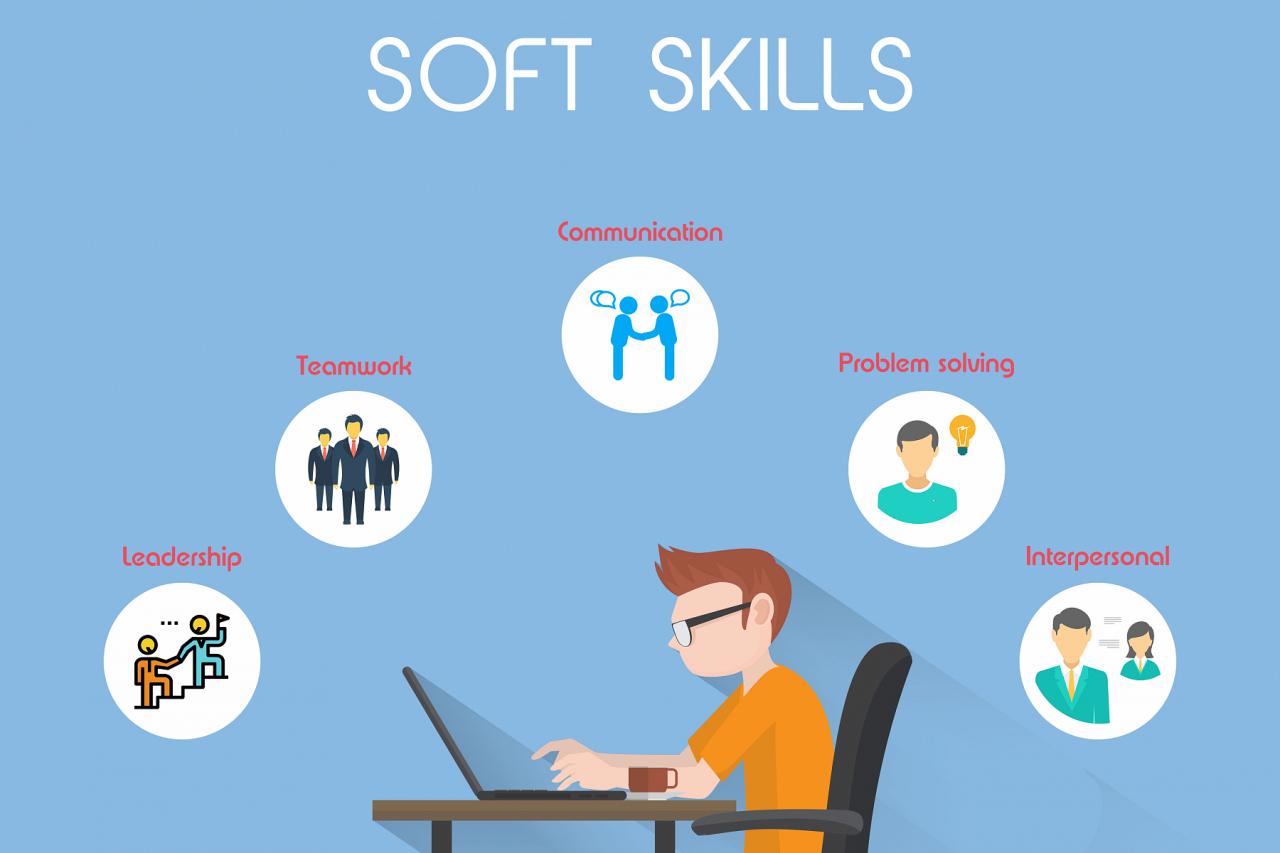Training soft skills: How to improve your social skills
Soft skills are becoming more and more important for success at work. Learned specialist knowledge and methodological competence are only half the battle. Because if your attitude and relationship with yourself and others are not right, you will not advance your 1.0 degree and all of your knowledge alone. HR managers complain about a lack of soft skills among applicants and candidates underestimate the importance of the hiring process, as this study shows. With the increasing change in the world of work towards more project work, interdisciplinary, agile, or even virtual teams, and more individual responsibility, the importance of social skills will continue to increase. Soft skills can be trained. Not overnight in a weekend seminar, but through awareness, mindfulness and attention, observation, and self-reflection. The great thing about it: You can train it anytime, anywhere. In private life as well as at work. Regardless of whether you are a schoolchild, student, young professional, or old hand, you can work on your soft skills every day on the side, but in a targeted manner:
Training soft skills: 6 exercises for more social competence
Any form of exercise is effective if you focus. Therefore, I present a weekly plan with which you can train and develop a different social competence every day.
Perhaps you will have to leave your usual comfort zone for this workout. Dare to go out step by step as far as you want and believe that it is good for you. Training shouldn’t be torture! Be curious whether and what will change.
You will likely find yourself in a situation where you will fall back into old habits. If you really get into the exercise of the day, you will quickly recognize these situations. Try doing something different than usual to actively train new behavior. Perhaps those around you will shake heads and reap amazement. This is normal, as your behavior is unfamiliar to others.
Monday: Active listening
Today you are listening carefully to what others have to say. Concentrate on consciously taking in everything that he/she says when talking to the boss, colleague, or partner. During this time, press the pause button for your own movie in your head. Do you really care! (Only if you are really interested, of course.) Take note of as much information from your counterpart as possible. Pay attention not only to the content but also to language, posture, gestures, and facial expressions.
My tip: Imagine you have to repeat what the other person said at the beginning of your answer before making your statement. Just introduce yourself, otherwise, the conversation will be stiff and silly. When it is your turn, say what is important to you in response. Active listening is exhausting. But you will be surprised how much communication benefits from it because there are no misunderstandings and you simply “understand” each other better.
Tuesday: Appreciation
No, today you shouldn’t praise everything and everyone. That would not be authentic! Rather, be careful not only to look for problems and criticize mistakes but also successes and see what works well. Acknowledge it in yourself and speak it out to others. Appreciate your achievements and the achievements of others, even if they may not be anything special for you at first are. Your appreciation and praise should be meant to be authentic and genuine.
Find out for yourself today what appreciation and recognition mean for you in your various roles in your professional and private life. In which situations or with which people do you find it easy/difficult to be appreciative and why is that? On the other hand: Who would you like to have more appreciation from yourself and what can you contribute to this yourself? What changes in your relationship with yourself and with others on your Appreciation Tuesday?
Wednesday: empathy
Any behavior makes sense in any context. If a colleague or employee annoys you again, put yourself in his / her position and ask yourself: Why is it important to him/her to behave like this and not differently? What is going on in the head of the other? Don’t rush to judge or judge behavior because you would do something differently or think you know better. Try to understand the behavior of others in their context.
Many people mistake empathy for pity. But compassion and compassion make a difference. Put on your counterpart’s glasses and try to see the subject in the room through their perspective. Get to know the people around you with their values and points of view: What is important to them and why? For the executives among you: How do your employees feel? How do the employees perceive themselves and how do you perceive them? What do your employees need from you to do a good job?
It’s not about analyzing and understanding every other behavior. Then you would be very busy and only read minds. No, rather it is about your own awareness that other people can have a different view of things and that there is not always a right or wrong. Extend your emotional antennae on Wednesdays and be particularly aware of interpersonal relationships.
Thursday: Teamwork
Today it’s about being strong and successful together. Teamwork will become more and more important in the future. Teamwork doesn’t stop with your employer, it also affects your private life. How well can you get involved with other people, pursue ideas together and work on solutions? Even if you don’t have a single appointment today, you are sure to come into contact with colleagues or other people in some form. Teamwork also means carrying the older neighbors’ purchases up the stairs or helping colleagues with difficult tasks.
Pay attention today to how you can use which of your strengths for the benefit of the community. Do not wait until someone asks you for advice; offer your support (not intrusively!). If you are working in a team today or if a meeting is pending, then pay attention to which role you play in the team and which might be different in the future. Also, keep your eyes and ears open to see how others perceive you as a team member. Are you accepted and welcome to the team? If so, what exactly is it that others appreciate about you? If not, what can you do to improve teamwork yourself?
Friday: personal responsibility
Before the weekend starts, become the boss today – of your own life! Take responsibility for your actions. Today you neither put the blame in the shoes of others nor avoid things or mutate into a fellow pig. Make an active decision on what is important to you at this moment. Throughout the day, pay attention to the situations in which you would most like to give up responsibility because you are used to it and it would be so easy. Ask yourself whether it is right not to take responsibility in this situation (if so, who is actually responsible?) Or whether you should actively take it instead?
On this day you will quickly notice how often you don’t feel responsible out of habit, even though you actually are. Typical are cases where you whine, are angry at others, or resent about something. Your exercise today: If you notice these feelings, do not be a victim of the bad circumstances, but clarify for yourself what the situation has to do with you and whether or how you can take responsibility instead – to your boss Life day.
Saturday: Weekly Review

Today you reflect on your experiences of the past week. What worked well and where did you feel comfortable? What did you find difficult and what do you think was the cause? What do you plan to do for the next week, continue training, or do differently?
Social competence includes two aspects: It is the behavior with and to yourself and also the behavior with and to others. Separate your weekly review according to this distinction:
What have you personally brought last week’s training? How have your own perception, behavior, motivation, self-discipline, self-esteem, and self-awareness changed? Is there anything that has changed and if so, was it helpful and good for you?
What has changed compared to? Your ability to criticize or deal with conflict, ability to work in a team, ability to compromise, tolerance, communication, appreciation of others. How did you experience your interaction with others and what reactions did you observe from others towards you?
Sunday: rest day
I guess you know what to do today.
You probably guessed it: a week of soft skills training is not enough. As for all competencies, the maxim of lifelong learning also applies here. If you are “in practice”, then forget your weekly plan and train what is important for you, your position, and your environment.







